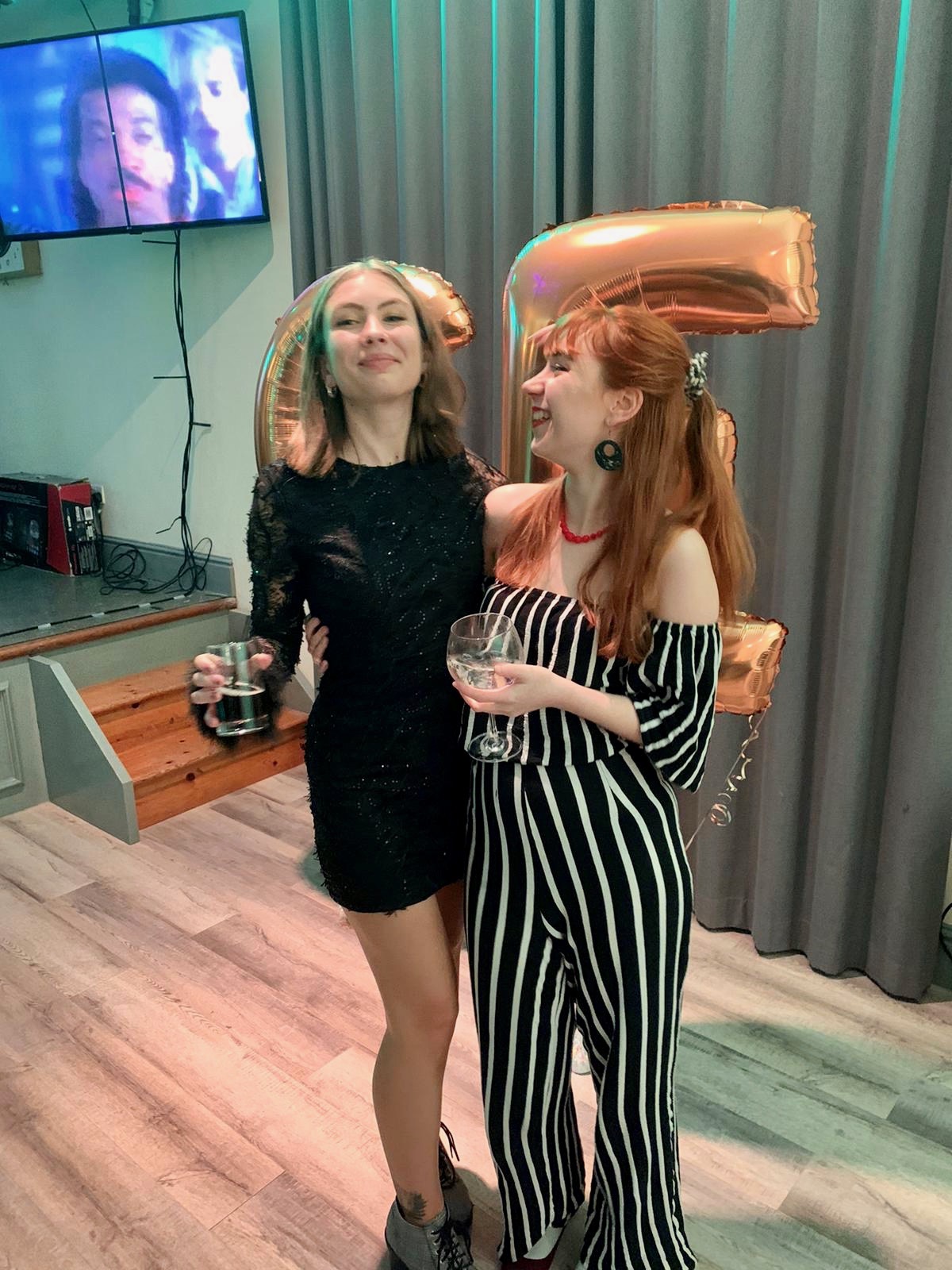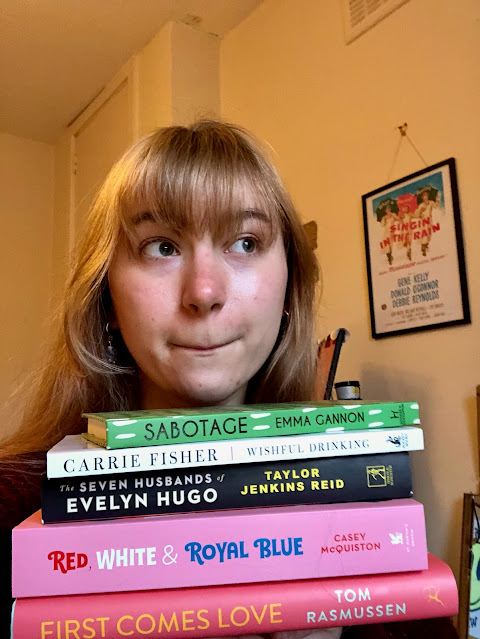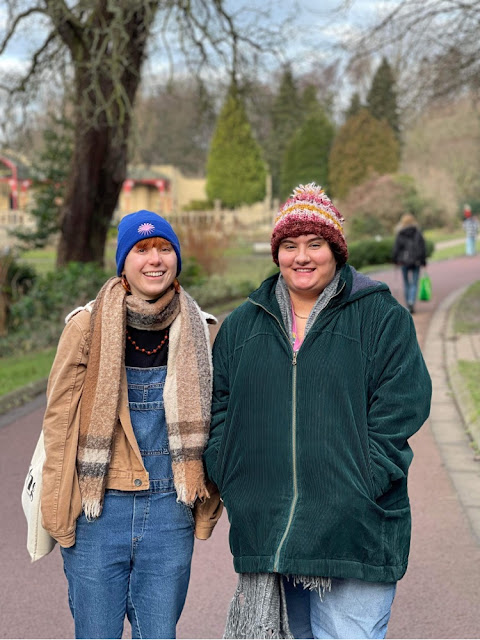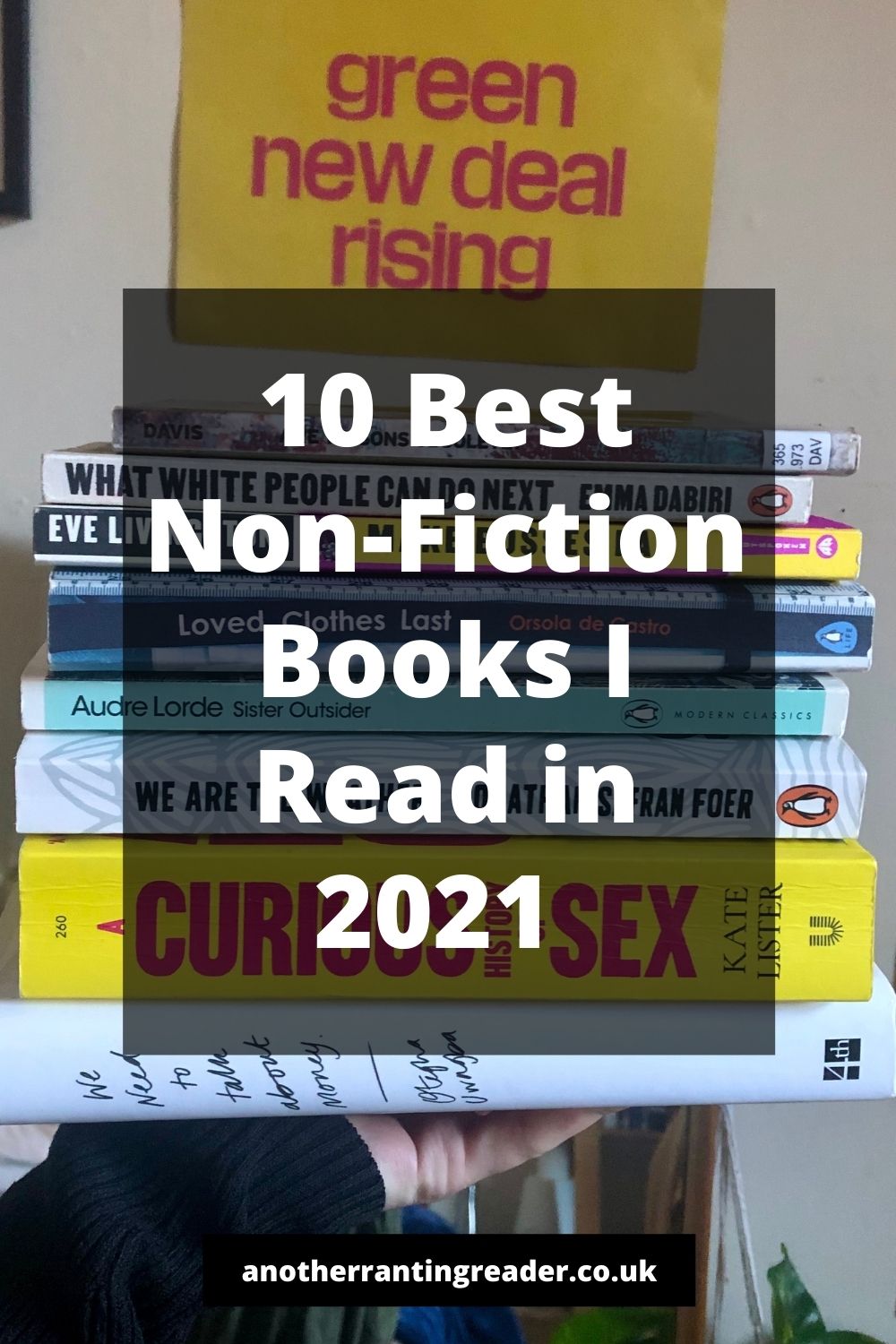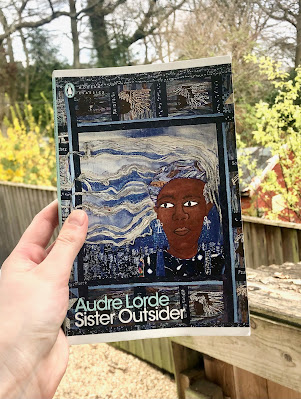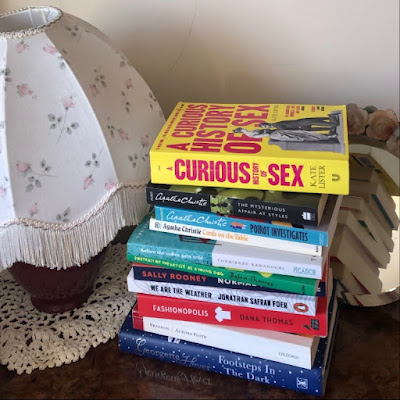January, you were overall quite a good way to kickstart 2022.
Favourite part?
I spent the first few days of 2022 in isolation with Covid. I was eventually able to get out and travel back home after seeing my family over Christmas. It was nice to be outside again but also just very weird being around people. I got very paranoid I was going to infect people even though I wasn’t infectious anymore.
Quite quickly I had to start cracking on deadlines which were looming. I feel like I’m getting into more of a swing with my masters with a routine and habits, and I’m certainly getting more comfortable with what I’m doing and settling in for the next (nearly) 2 years I have left.
I may have had a slight resurgence in my book-buying addiction recently, mostly because I’ve been getting excited at the prospect of reading more novels just for the fun of it. It doesn’t help when there have been lots of sales on by publishers of radical non-fiction books I want to read anyway. Book buying and book reading are two completely different hobbies…
Half way through January I was part of a Green New Deal Rising action challenging her championing of the Policing Bill that is currently in its final stages in Parliament. I spoke to her directly and many others flooded the Zoom chat with challenges and held up Kill the Bill signs. It all feels a bit like a fever dream now. And seeing a video with my voice so prominently shared by thousands of people, including big name groups and individuals, felt a bit surreal. I felt like some of the pressure or credit for the action was on me when I did very very little for the actual action itself, I just turned up and said some words then left and drank half a bottle of prosecco while jumping up and down in my kitchen. If there’s one thing I was wish people knew more about actions and political organising, it would be that there is so much that goes in to one action, even if it looks like a couple of people just doing one thing one day and filming it. Yes, people do turn up. But there’s also many planning meeting, admin to make sure it runs smoothly, role assigning, filmers, writing out what’s going to be said, finding opportunities for actions, editing the film, captioning… There are so many roles and so many people involved with every single action. That’s what creates a movement and impact: people showing up and doing something. If you haven’t already, watch and share the video (it’s incredibly well edited) and learn about how you can get involved with GNDR here.
I’ve loved being able to spend more time with friends. It feels hard trying to see each other now that everyone is on different schedules and in different parts of the country, so I value seeing them more now when I do. Whether that’s going for coffee or lunch, or walks around a park, or having a games night, it makes me so happy to see them.
I spent a great weekend celebrating some friends’ engagement. It was great for us all to be reunited and to just have fun dancing together.
Best read?
I’ve been getting back into reading fiction for fun recently, and I am loving it. Let’s hope I am able to continue this for the rest of the year! I first read A Christmas Party by Georgette Heyer on my train back home after Christmas and in my first few days back before I started working again.
I then read The Seven Husbands of Evelyn Hugo by Taylor Jenkins-Reid in about 24 hours and absolutely loved it. My favourite book of the month (if not favourite fiction book for a lot longer than that). I was a little bit skeptical because of the amount of hype around this book but honestly it’s worth it. I couldn’t put it down. It’s so gripping and the characters are brilliant. And I was not expecting the final twist. Read it.
I then read Sabotage by Emma Gannon (mostly while I was in the hairdressers having my hair re-dyed). It’s one I need to re-read because I’m not sure I fully took in everything she was saying, but it definitely had a lot I need to hear about in.
I also read Esio Trot by Roald Dahl and Percy Jackson by Rick Riordan. I read those for my tutoring, but honestly I actually found it quite fun re-reading some nostalgic favourites. I also finished reading How to Be an Anti-Capitalist in the 21st Century by Erik Olin Wright after having started it in December.
I finished reading Lovers and Writers by Lily King yesterday evening. I heard good things about this book but it’s been a bit of a slow-burner for me. It picked up a bit more after about 100 pages and became faster paced at the end. I think there's a lot you could say about the pacing of the novel linking with the main character's state of mind, but in general I thought it was okay but nothing incredible.
Favourite listen?
I had a great time listening to Emily Stochl and Venetia La Manna’s discussion on Pre-Loved podcast. It was interesting and a joy to listen to!
Favourite watch?
When I got back up to Newcastle, I rewatched The People v OJ Simpson and Black and British. I have now seen Black and British several times and it always makes me feel emotional.
I also stumbled upon the series Black is the New Black from a few years ago, and spent an afternoon watching that.
I finally watched Cruella, which I enjoyed a lot more than I was expecting to. I mean, if something has Emma Thompson of course I’ll enjoy it.
I then watched Afterlife (and had the occasional cry at it), bits of Crazy Ex-Girlfriend, and a full rewatch of Bridgerton in preparation for the new series.
I’ve been watching more book related videos on YouTube and TikTok too, but still watching mostly my usual faves Jack Edwards and Leena Norms.
 |
| Image source |
What did I learn?
It’s not a great idea to have cards that make up most of my life in one bus-pass holder. And it’s also not a good idea to leave that bus-pass holder on the bus, and especially not on a Friday afternoon.
What’s happening next month?
Getting my next essay in then relaxing! Taking a well-deserved break.
What’s been on my mind?
Essays, resting after having Covid.
Favourite post?
I think 10 Best Non-Fiction Books I Read in 2021. I read some incredible non-fiction books last year and it was fun to look back at those books as well as to think about the books I’m going to read this year.
Biggest inspiration?
Honestly, enjoying what I’m doing. I’m loving what I’m studying, I’m loving what I’m writing, I’m loving the organising work I’m part of, and the prospect of being able to spend more time doing those things.
Any other favourites?
Having downloaded it while in isolation over Christmas, I am now slightly obsessed with TikTok. It’s becoming a problem. My For You page is now 90% Taylor Swift and cat videos, sometimes both at the same time.
Instagram | Bloglovin' | Pinterest | Twitter

